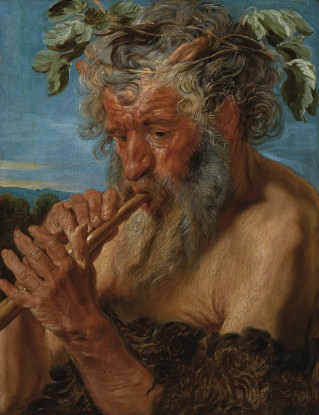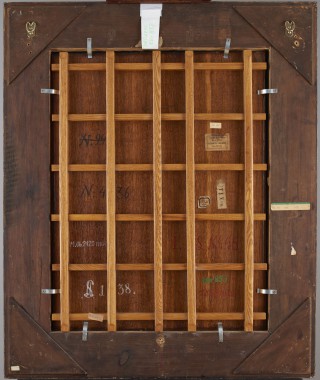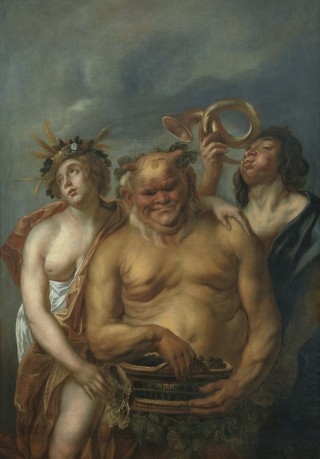Satyr Playing a Flute
- Date
- c 1620-1621
- Object type
- painting
- Technique
- oil
- Material
- oak
- Dimensions
- 64,0 x 49,0 cm
- Acquisition date
- 1776
- Location
- The Palace on the Isle - Picture Gallery, ground floor
- Place of Origin
- Antwerpia (Belgium)
- Owner
- The Royal Łazienki
- Museum number
- ŁKr 853
The painting comes from the August Sułkowski collection in Rydzyna; it is one of nine, so far, identified paintings purchased by Stanisław August from Rydzyna, before 1776 (see cat. no. 124). In the catalogues of the Stanisław August collection it is recorded as by the school of Rubens and with a low value of 30 ducats. …
Ksawery Kaniewski was the first who thought the painting may be by Jordaens—in his 1851 handwritten catalogue of paintings at the Łazienki. …
The painting is of a very high quality: painted with a sketchy technique, spontaneous, rapid brushstrokes and is characterized by its vivid, serene colouring and expressive chiaroscuro, which bring out the expressivity of the satyr’s furrowed face and his figure bathed in the golden light of the sun. …
The artist painted a satyr, or perhaps a faun, playing the flute on several occasions. As d’Hulst noticed, in such depictions, which have no narrative context, it is difficult to ascertain which mythological deity is being represented: a satyr, faun, Silenus or perhaps Pan … .
The subject of the Łazienki painting was analyzed by Hanna Benesz in a catalogue of the Gdańsk exhibition devoted to depictions of music in European art (See H. Benesz, in: Usłyszeć obraz. Muzyka w sztuce europejskiej od XV do początku XX wieku, exh., cat., Muzeum Narodowe w Gdańsku, Gdańsk 2007, no. 78, p. 312; cf. id.: Treasures of a Polish King. Stanislaus Augustus as Patron and Collector, exh., cat., London, Dulwich Picture Gallery, 1992.) The satyr, a companion of Dionysus, is a deity associated with idyllic, unspoilt nature, as well as with uncontrollable passions. The flute (aulos) on which he plays is the instrument of shepherds, and therefore, of fauns and satyrs, too. The music of wind instruments: primal, simple, belonging to the Dionysian sphere, was juxtaposed with that belonging to the Apollonian sphere—the music of stringed instruments, more highly- regarded because it was written in metres and had to be learnt … . [See D. Juszczak, H. Małachowicz, The Stanisław August Collection of Paintings at the Royal Łazienki. Catalogue, Royal Łazienki Museum, Warsaw 2016, no. 52, pp. 205–207.]




